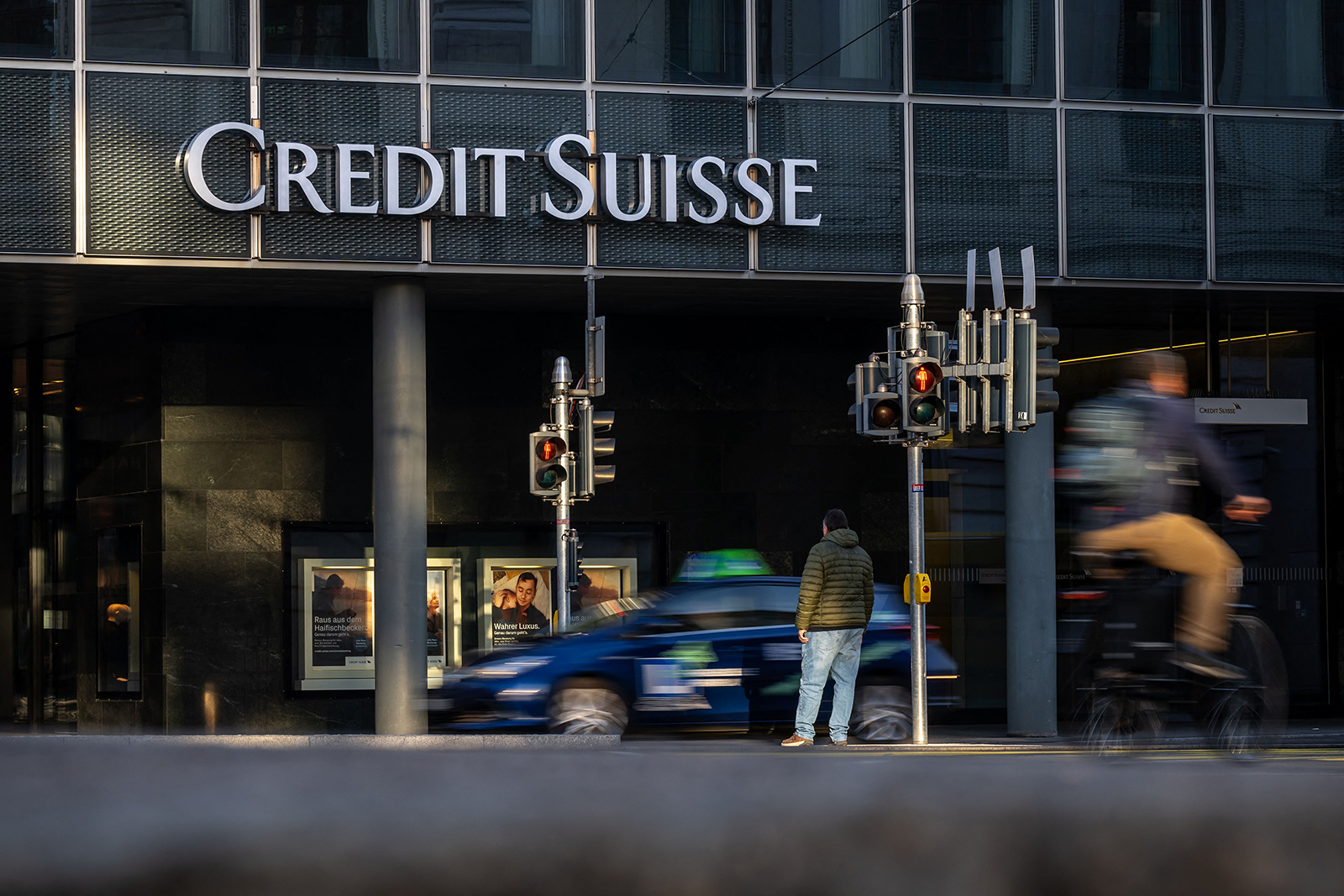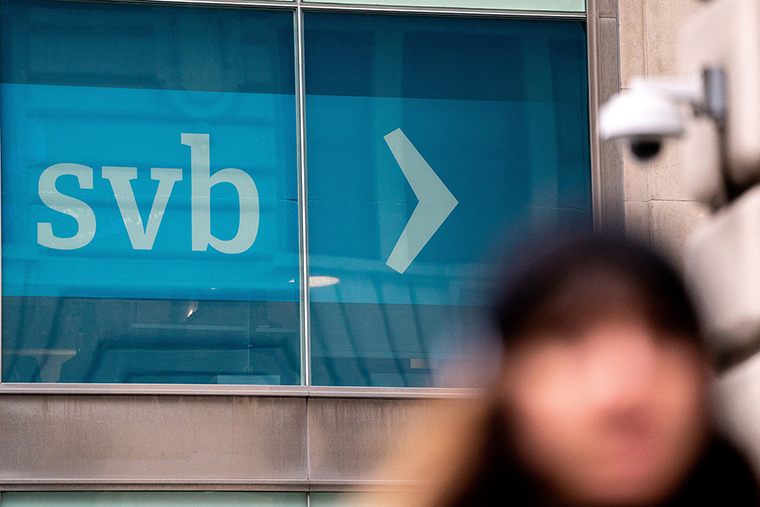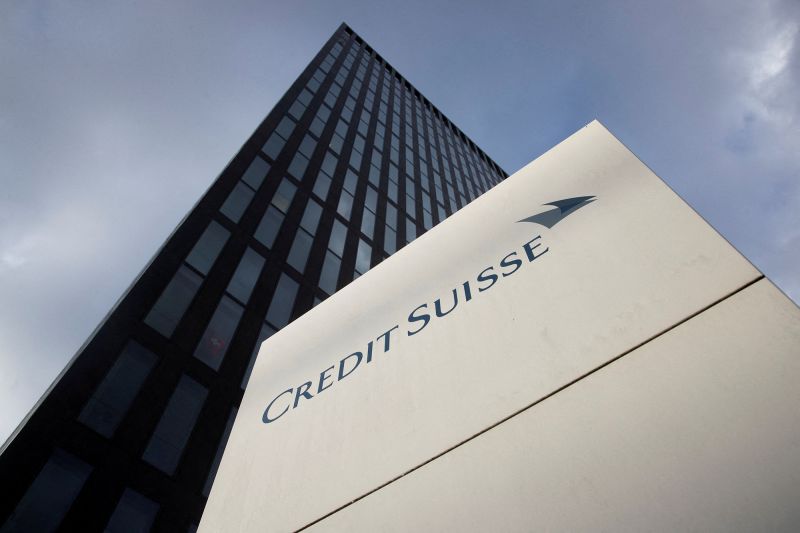
March 15, 2023 Global stocks and banking news
From CNN’s Allison Morrow
Just as the panic over the US banking system appeared to fade, a fresh burst of anxiety blew in from Europe.
Credit Suisse shares crashed more than 20% in Zurich, dragging down European bank stocks along with it. US stock futures fell Wednesday morning after rallying strongly on Tuesday.
What’s the connection between Credit Suisse and SVB? They’re facing unrelated problems that happened to take place at the same time, worrying investors about the banking sector.
“Credit Suisse has been a slowing-moving car crash for years,” wrote Peter Boockvar, chief investment officer of Bleakley Financial Group. “But now today’s news of course is happening in the vortex of SVB.”
The “global bank psychology” is already fragile, Boockvar said. Investors around the world were thoroughly rattled by the collapse of Silicon Valley Bank and Signature, making the banking sector particularly vulnerable to any signs of trouble.
Did the SVB mess cause Credit Suisse shares to tank? No. But are European and US banks facing a similar macro environment of suddenly-higher interest rates following a decade or more of low (or even negative) rates? Yes.
Americans pulled back on their spending in February
From CNN’s Alicia Wallace

Americans pulled back on their spending last month after a surprisingly spendy January.
US retail sales fell 0.4% in February from the month before, which was revised up to 3.3%, the Department of Commerce reported on Wednesday.
That decline, which was adjusted for seasonal swings, was greater than economists’ expectations of a 0.3% decline, according to Refinitiv estimates.
Retail sales data is not adjusted for inflation.
Key inflation measure shows wholesale prices fell last month
From CNN’s Lucy Bayly
A key measure of inflation fell dramatically in February, according to the latest Producer Price Index, which tracks what America’s producers get paid for their goods and services.
Producer price increases slowed to an annual pace of 4.6% last month, significantly down from a revised 5.7% in January, the Labor Department reported Wednesday. February prices fell by 0.1% after rising 0.7% in January.
Economists surveyed by Refinitiv had been expecting the 12-month rise in wholesale prices to slow to a 5.4% increase.
Shares of European banks halted
From CNN’s David Goldman

Shares of several top European banks have been halted Wednesday as the fallout from Credit Suisse’s crisis of confidence spilled out throughout the sector.
French and German banks such as BNP Paribas, Societe Generale, Commerzbank and Deutsche Bank were falling.
Several bank stocks were halted, triggering automatic circuit breakers designed to give investors a breather and prevent stocks from rapidly collapsing.
Among them:
— Credit Suisse, which fell more than 20%
— Monte dei Paschi, -6%
— UniCredit, -7%
Larry Fink: It’s too early to know how widespread the damage is
From CNN’s David Goldman

In an annual letter to shareholders, BlackRock CEO Larry Fink said the fallout from Silicon Valley Bank’s collapse may not be over.
“It’s too early to know how widespread the damage is,” Fink wrote. “The regulatory response has so far been swift, and decisive actions have helped stave off contagion risks. But markets remain on edge. Will asset-liability mismatches be the second domino to fall?”
Fear has certainly spread. The punishment America’s regional banks took in the wake of SVB’s collapse appears to have ebbed. But in Europe, bank stocks were tumbling after Credit Suisse’s biggest shareholder said it wouldn’t invest any additional capital in the deeply troubled bank.
Fink noted the Federal Reserve’s historic pace of rate hikes created a domino effect that ultimately led to SVB’s collapse. In the past, similar rate-hiking situations have led to “spectacular financial flameouts,” including the decade-long savings and loan crisis.
But Fink doesn’t think the Fed is about to reverse course — he expects the central bank will keep rates high for quite some time, as leaders in the public and private sector trade efficiency and lower costs for supply chain resilience and national security.
That’s one of the reasons, he writes, “that I believe inflation will persist and be more difficult for central bankers to tame. As a result, I believe inflation is more likely to stay closer to 3.5% or 4% in the next few years.”
Markets flash warning signs
From CNN’s Mark Thompson
Credit Suisse’s shares were trading down nearly 22% in Zurich on Wednesday, and the cost of buying insurance against the risk of a Credit Suisse default hit a new record high, according to S&P Global Market Intelligence.
The crash spilled over into other European banking shares, with French and German banks such as BNP Paribas, Societe Generale, Commerzbank and Deutsche Bank falling between 8% and 10%.
Customers withdrew billions from Credit Suisse last year, contributing to the bank’s biggest annual loss since the global financial crisis in 2008. And the blows keep coming for Switzerland’s second biggest bank.
On Tuesday, it acknowledged “material weakness” in its financial reporting and scrapped bonuses for top executives.
Speaking to Bloomberg TV on Tuesday, Credit Suisse CEO Ulrich Körner said the bank saw “material good inflows” of money on Monday, even as markets were spooked by the collapse of Silicon Valley Bank and Signature Bank in the United States.
Outflows from the bank had “significantly moderated” after customers withdrew 111 billion francs ($122 billion) in the three months to December, Körner added. In its annual report, the bank said outflows had not yet reversed by the end of last year.
Körner said the collapse of SVB was “somewhat of an isolated problem.” Credit Suisse follows “materially different and higher standards when it comes to capital funding, liquidity and so on,” he added.
Credit Suisse shares crash as Saudi investor rules out more funds
From CNN’s Mark Thompson

Shares of Credit Suisse crashed more than 20% to a record low after its biggest shareholder appeared to rule out providing any more funding for the embattled Swiss lender.
In an interview with Bloomberg, the chairman of the Saudi National Bank said it would not increase its stake in the Swiss lender.
“The answer is absolutely not, for many reasons. I’ll cite the simplest reason, which is regulatory and statutory. We now own 9.8% of the bank — if we go above 10% all kinds of new rules kick in, whether be it by our regulator or the European regulator or the Swiss regulator,” Ammar Al Khudairy told Bloomberg. “We’re not inclined to get into a new regulatory regime.”
Stocks sink sharply on bank sector fears
From CNN’s David Goldman
Stocks: US stock futures tumbled after the Saudis said they would not bail out Credit Suisse, injecting new fear into the global banking system. Investors continue to wrestle with the SVB failure fallout and what it might mean for the Fed’s ability to balance its battle with inflation and the need to keep the banking sector secure. And key economic reports on inflation and retail sales also weighed on Wall Street.
Dow futures were down 500 points, or 1.5%. S&P 500 futures fell 1.6%. Nasdaq Composite futures were 1.4% lower.
Fear & Greed Index: 23=Extreme Fear
Oil & gas: US oil prices were down 0.2% to $71 a barrel. Average US gas prices held steady at $3.47 a gallon.
Do you have questions about the bank collapse?
From CNN staff
